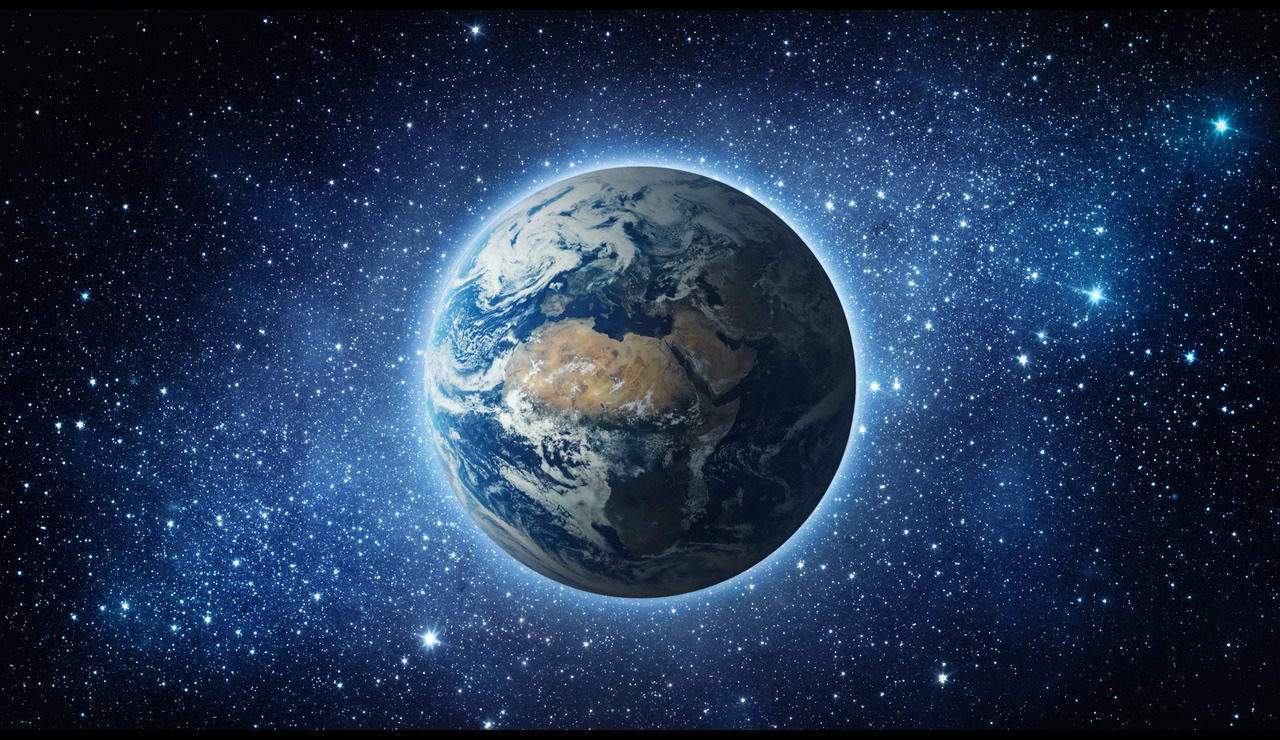Biocentrism Debunked, Unveiling the truth challenging popular beliefs, and debunking myths is exhilarating. Today, we embark on a journey through the enigmatic realm of biocentrism. This concept has captured the imaginations of many with its audacious claim: that consciousness is the fundamental force shaping our universe. But as we delve deeper into this captivating theory, it becomes increasingly clear that not all is what it seems. In this blog post, we will scrutinize and dispel the myths propagated by an influential piece of literature on biocentrism. Buckle up for a thought-provoking ride as we uncover the truth behind this controversial hypothesis and explore why it fails to align with established scientific theories.
It’s time to separate fact from fiction and shed light on why biocentrism may be nothing more than an intriguing but ultimately unfounded concept. So sit back, relax, and prepare yourself for a journey into the world of biocentrism debunked!
The Universe is Not Conscious | Biocentrism debunked
Let’s start by addressing the bold claim that the universe is conscious. While it may sound intriguing, little evidence supports such a notion. The universe, vast and awe-inspiring as it may be, operates according to physical laws and principles that can be explained through scientific inquiry.
Conversely, consciousness is a complex phenomenon observed in living organisms with highly developed brains. It arises from intricate neural networks and biochemical processes within these organisms. To suggest that something as immense and impersonal as the entire cosmos possesses consciousness seems far fetched at best biocentrism debunked.

Our understanding of cosmology relies heavily on mathematical models and empirical observations—tools that have allowed us to unravel many mysteries of the universe without invoking consciousness as an explanatory factor. Biocentrism debunked
While it is fascinating to ponder profound questions regarding our place in the cosmos, attributing consciousness to the universe seems more like a philosophical musing than a scientifically supported concept. We only uncover more profound truths about reality by embracing rigorous research methodologies while avoiding unfounded claims based solely on speculation or personal belief systems.
Consciousness is Not Required for the Existence of the Universe
Consciousness is a fascinating and complex topic that has captivated philosophers, scientists, and thinkers. It’s no wonder that theories like biocentrism have gained popularity in recent years. Biocentrism suggests that consciousness is fundamental to understanding the universe and necessary for its existence.
However, closer to this claim, it becomes clear that consciousness is not required for the universe’s existence. The vastness of space, with its countless galaxies and celestial bodies, existed long before any form of conscious life emerged on Earth.
While it may be tempting to believe that our human experience holds special significance in shaping reality as we know it, evidence from cosmology and physics tells us otherwise. Consciousness may be a remarkable feature of certain living beings on Earth, but attributing its necessity to the fabric of existence seems far fetched.
While biocentrism proposes an intriguing perspective on how consciousness relates to our understanding of the universe – suggesting it as a crucial element it lacks concrete evidence or logical reasoning to support this assertion fully.
Biological Life is Not the Center of the Universe Biocentrism Debunked
Humans tend to think that we are at the centre of everything. It’s an ego boost, no doubt. But our inflated sense of importance falls flat when it comes to the universe.
In reality, biological life is just a speck in the vast expanse of space and time. The universe has existed for billions of years before life even existed on Earth. And it will continue to live long after we are gone.
Think about it: there are trillions of stars, each with their planets and potential for life. To believe that our little blue planet is somehow unique or central to this cosmic dance is nothing short of arrogance.
Moreover, considering all the galaxies and black holes scattered across the cosmos, it becomes abundantly clear that biological life occupies an infinitesimally small fraction of universal existence.
So, let’s not fool ourselves into thinking that we hold any privileged position in this grand tapestry called the universe. We may be significant in our lives and minds, but on a cosmic scale? We’re among countless others trying to find our place in this vast sea of stars. biocentrism debunked
Perhaps embracing this perspective can help us appreciate how interconnected and interdependent all forms of life are from microscopic organisms to giant celestial bodies reminding us that every living being has a role in maintaining balance within this awe inspiring universe.
Biocentrism debunked Does Not Align with Established Scientific Theories
Biocentrism, an intriguing concept that suggests the universe revolves around consciousness, has gained attention recently. However, it is essential to examine its alignment with established scientific theories. While biocentrism may offer a fresh perspective on our place in the cosmos, it does not align with the current understanding of how the universe functions.
Scientific theories are built upon empirical evidence and rigorous testing. They provide explanations for natural phenomena based on observable data and mathematical models. Conversely, biocentrism relies heavily on philosophical interpretations and subjective experiences rather than objective scientific inquiry.
The cornerstone of biocentrism is the idea that consciousness creates reality. This notion starkly contrasts well established theories such as quantum mechanics and general relativity, which describe fundamental laws governing matter and energy without requiring conscious observation or participation.
Furthermore, biocentrism’s claim that biological life is unique in determining reality contradicts our knowledge of non living systems like stars, galaxies, and even subatomic particles. These entities operate according to physical laws unaffected by conscious thought or existence.
It is worth noting that while biocentrism presents fascinating ideas about perception and our role in shaping reality subjectively, it lacks testable predictions essential for scientific validation. Biocentric views can be scientifically sound, with empirical evidence supporting their claims or opportunities for falsification through experimentation or observation Biocentrism debunked.
As we continue exploring the mysteries of existence within a robust scientific framework backed by rigorous research methods and objective observations
Lack of Testable Predictions
When it comes to the scientific method, testability is a crucial aspect. The ability to formulate hypotheses and conduct experiments to gather evidence sets science apart from mere speculation. In the case of biocentrism, however, this principle is lacking.
One main criticism against biocentrism is its lack of testable predictions. While proponents of this theory may argue that it offers a new perspective on our place in the universe, without concrete ways to test its claims, it remains firmly in philosophy rather than science.
Critics often point out that biocentrism fails to provide specific experimental protocols or measurable outcomes that would allow scientists to validate or refute its assertions. These crucial elements make it easier for researchers in various fields to engage with and explore the ideas put forth by biocentrism.
Without such empirical validation, biocentrism remains speculative at best. It may raise thought-provoking questions about consciousness and our place in the cosmos, but it must provide tangible evidence or practical applications.
While some may find comfort or inspiration in contemplating alternative theories like biocentrism, we must remember that actual progress lies in questioning existing paradigms and rigorously testing our assumptions through objective means. Only through this process can we genuinely separate fact from fiction and advance our understanding of ourselves and the universe around us
biocentrism debunked
In light of the evidence presented, it is clear that biocentrism does not hold up under scrutiny. The idea that the universe is conscious and that consciousness is required for its existence needs more scientific support and goes against established theories in physics and biology.
While exploring different perspectives on our place in the universe is fascinating, we must be cautious about accepting ideas without sufficient evidence. Biocentrism may have gained popularity through influential blog pieces, but many of its claims can be debunked upon closer examination.
It’s essential to approach science with an open mind and a critical eye. As we continue to unravel the mysteries of our world, let us rely on rigorous scientific inquiry and empirical evidence rather than unfounded speculation. Only by doing so can we truly understand our place in the vastness of the cosmos Biocentrism debunked.
So, while biocentrism may seem appealing at first glance when subjected to careful analysis, it becomes clear that this theory needs to withstand scientific scrutiny. As seekers of knowledge, we must separate fact from fiction and continue pushing forward towards a deeper understanding of reality.
you may also read here










